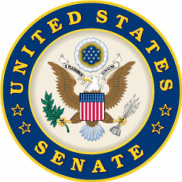"In U.S. history, there are many examples of extremist ideologies and movements. The colonists who sought to free themselves from British rule and the Confederate states who sought to secede from the Northern states are just two examples."
The document further claims:
“Individuals who hold extremist views are in conflict with the standards expected of all military members, and participation in extremism is inconsistent with the duties of military service...”
“All nations have an ideology, something in which they believe. When a political ideology falls outside the norms of society, it is known as extremism. When extremists take their ideology to the next level and believe that it is the only right ideology to follow, it becomes supremism.”
My immediate questions involve trying to figure out who decides what the “norms of society” are and what do they mean by “taking it to the next level?” Does that mean holding a rally or protest? A letter writing campaign? Starting a petition?
But here is the really alarming statement in the document:
“Nowadays, instead of dressing in sheets or publicly espousing hate messages, many extremists will talk of individual liberties, states’ rights, and how to make the world a better place.”
| In the twelve years after the terrorist attacks on 9-11 by Islamic militants, our nation has been engulfed in a Global War on Terror and we continue to seek out, identify and eliminate threats from extremists the world over. At this point however, it seems that extremism has been used so broadly that it can mean anything from a suicide bomber to the signers of our Declaration of Independence only because they signed a document highlighting the sanctity of individual liberty. |
|
Here is a real mind bender: the document states that, “Nowadays… many extremists will talk of individual liberties… and how to make the world a better place.” Huh? Lets follow the logic here. If the Department of Defense is setting policy for our military that identifies extremism as an ideology that falls outside the norms of society and they identify extremist behavior as those who advocate liberty and want to make the world a better place then it means that someone has already established that it is “normal” in our society for the majority of people to demonize liberty and to be so immoral as to not want to make the world a better place. What is going on at the Department of Defense that someone could actually get away with writing this? I believe just the opposite; the vast majority of Americans want to enjoy liberty and in fact want to make the world a better place.
Many people have always been under the impression, and rightfully so, that the point of American government was to protect liberty in an effort to make the world a better place. That might still be the case but apparently, someone has decided that the prevailing thought is something else. If you are in the group of people who still hold to the traditional, constitutional and liberty-minded school of thought, this document has branded you an extremist. According to this document, traditional American government and constitutionalism is now so far outside the scope of normal society that the Department of Defense must label it “extremism” and incompatible with U.S. military service. The irony here is that in order to become a member of the U.S. Military, one must still swear an oath to the Constitution, at least for now.
Listen and subscribe to my podcast on iTunes.


 RSS Feed
RSS Feed
